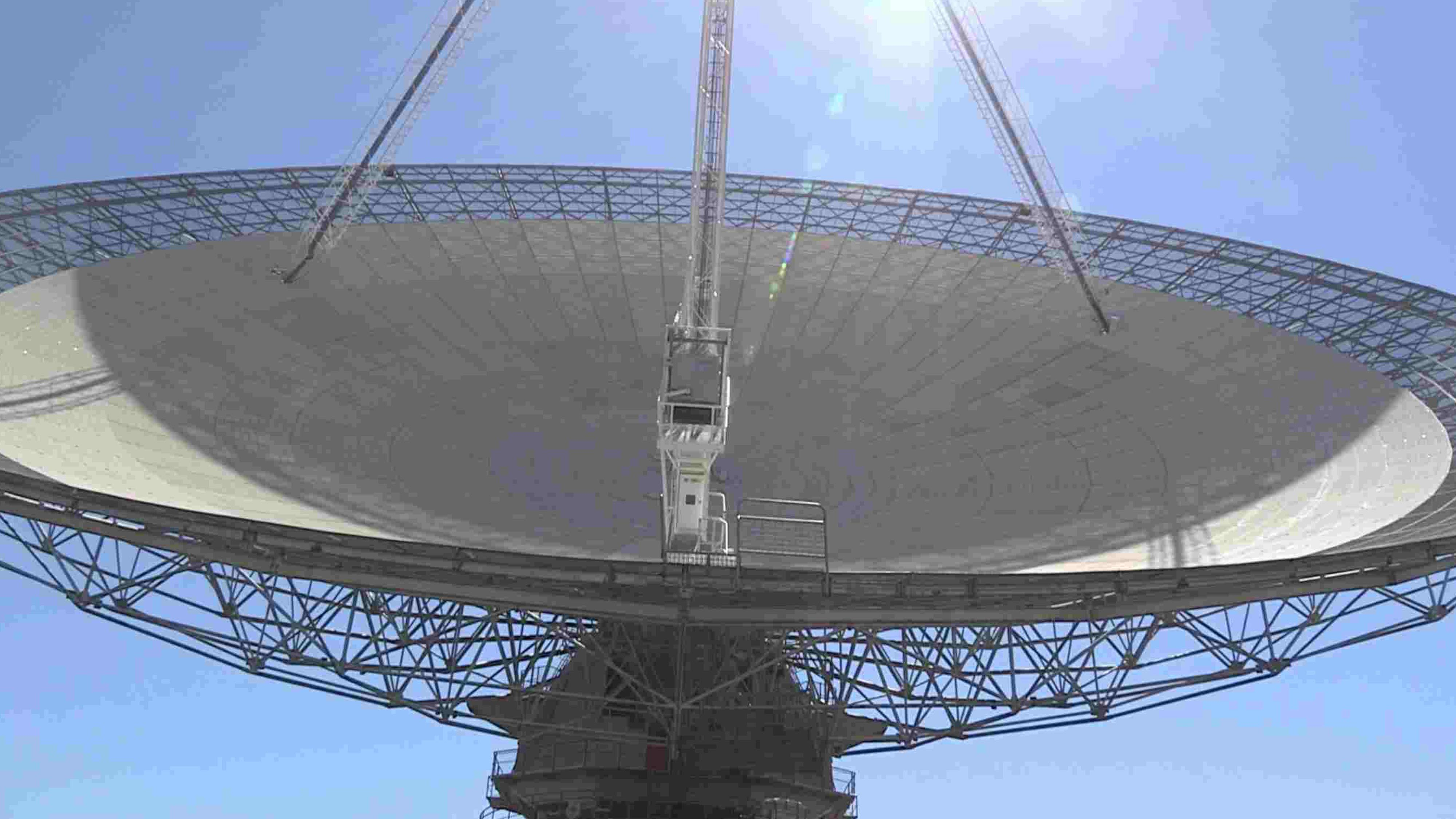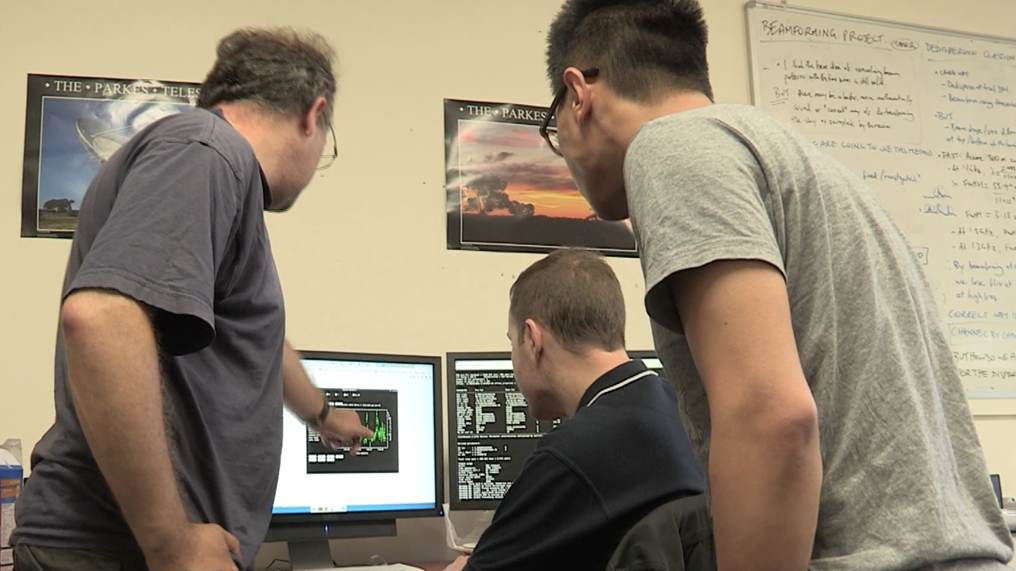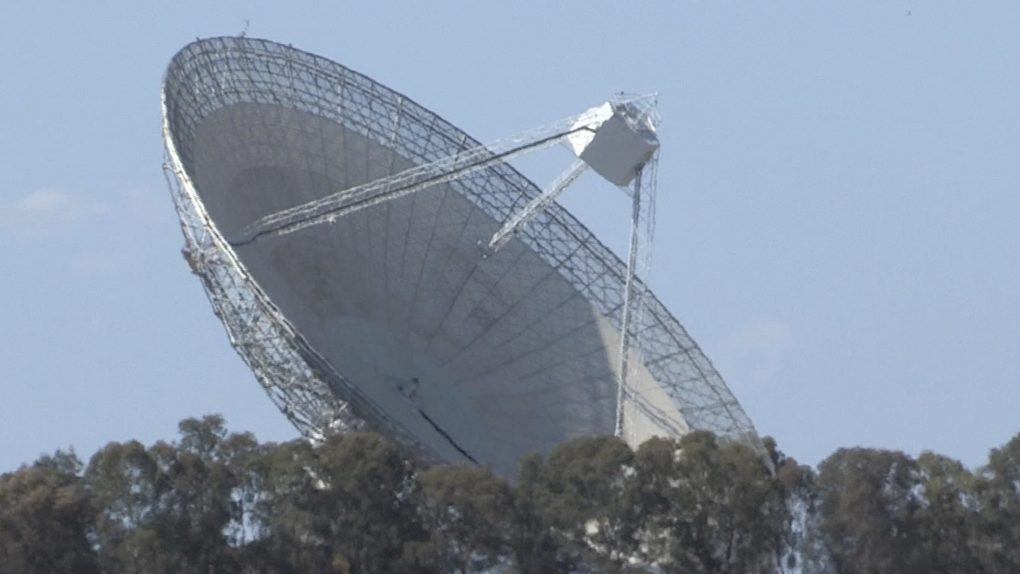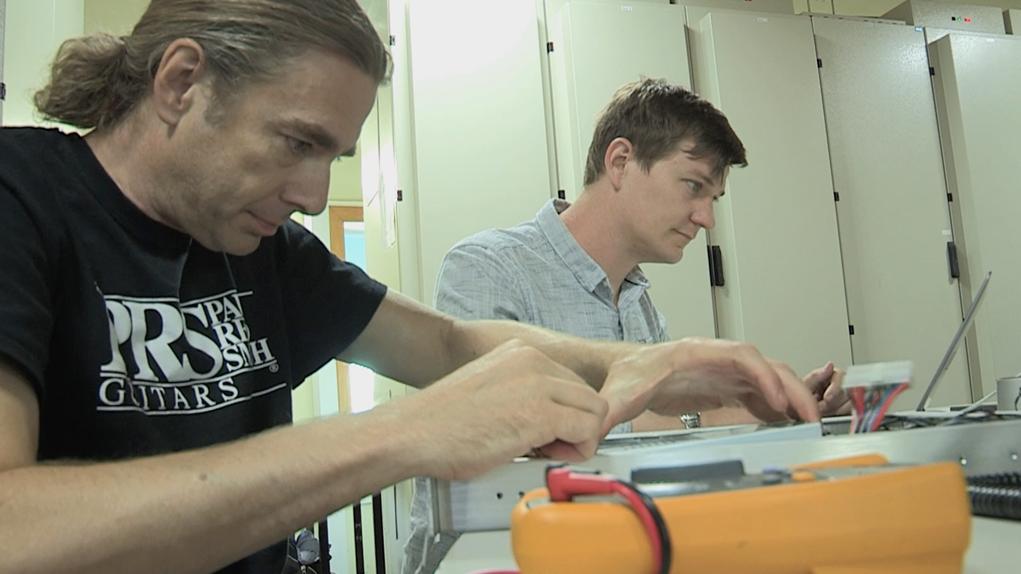
Space
15:26, 25-Oct-2018
The international search for answers about our universe
Updated
09:06, 29-Oct-2018
By Greg Navarro
02:13

A trio of scientists are huddled around an image on a computer screen in the Commonwealth Scientific and Industrial Research Organization (CSIRO) office in Sydney. They are trying to verify the existence of a pulsar, an extreme form of a star, first detected by the FAST radio telescope in China.

Scientists at CSIRO in Sydney. /CGTN Photo
Scientists at CSIRO in Sydney. /CGTN Photo
“We wanted to check that these pulsars are true, everything is well understood, we've used the Parkes telescope to confirm these pulsars,” said CSIRO research scientist George Hobbs.
The Parkes radio telescope in rural New South Wales was built in the early 1960s and scientists say it has proved to be invaluable.

Parkes radio telescope. /CGTN Photo
Parkes radio telescope. /CGTN Photo
“The Parkes telescope is arguably the finest single-dish radio telescope in the world,” said John Sarkissian, CSIRO Parkes Telescope operation scientist.
Its accomplishments include broadcasting images of man's first steps on the moon during the Apollo 11 mission, first detecting distant radio signals known as fast radio bursts, and aiding in the search for intelligent alien life.
“It is to be one of the most fundamental questions there is, are we alone,” said Breakthrough Listen at Parkes project scientist Danny Price.
A big reason for the radio telescope's success over the years is that it is constantly being upgraded. The latest installation involves putting in the world's most sensitive receiver and once it is inside, scientists say it will be even more versatile.

Scientists work inside the Parkes radio telescope. /CGTN Photo
Scientists work inside the Parkes radio telescope. /CGTN Photo
The current quest to better understand pulsars involves a collaborative effort between Australian and Chinese scientists.
“As an astronomer, you want to study your star or your object with as many different systems as you can so you collaborate,” said Hobbs.
“It is getting hard for one country to do these big projects so it has to be through collaboration between different countries and we combine resources and different skills together to achieve our goals,” said Shi Dai, a Bolton Research Fellow at CSIRO.
Scientists say many of those goals are designed to answer fundamental questions about the universe and better understand our place in it.

SITEMAP
Copyright © 2018 CGTN. Beijing ICP prepared NO.16065310-3
Copyright © 2018 CGTN. Beijing ICP prepared NO.16065310-3